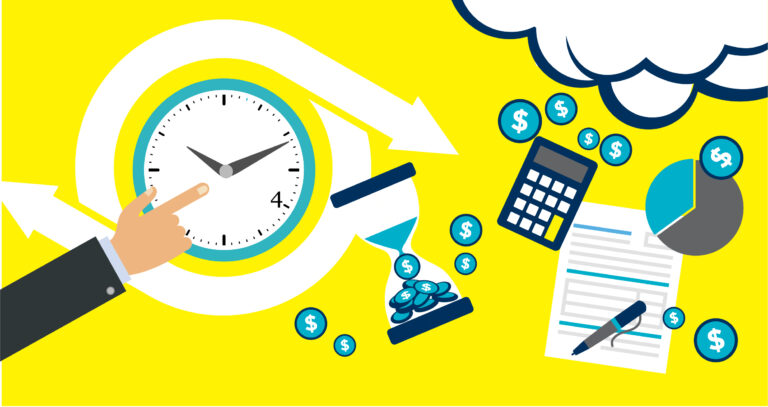The REEF Helpline has been inundated with calls regarding the Coronavirus and its impact on employment. To address some of your questions, please take the time to read the following essential information.
NOTE: This information has kindly been provided to REEF by our friends at Australian Business Lawyers & Advisors.
Q: Should I be talking to my employees about what is going on and how we’re looking to work through the COVID-19 pandemic?
A: The situation is evolving and very fluid and we would urge you to over-communicate right now. Employers who have a plan and are implementing it to balance the business and the employee’s welfare are managing quite well at the moment.
Most management teams are talking daily and communicating to employees every 48 hours as things develop.
Q: What more creative things might I do to get through this with my employees?
A: There are a lot of things that might be worth considering at different times. For instance:
- Split rosters to reduce who is in the office at any one time.
- Working from home.
- Moving to virtual meetings with customers or clients.
- Incentivising annual leave; e.g. “take three weeks and we will give you a fourth”
- Reducing exposure to public transport by providing parking or car pooling
- Providing some support to employees who have to attend the workplace which reduces general community exposure such as providing or buying-in lunch for them
- Exploring whether part-time work options may suit anyone for a period
- Possibly changing operating hours to reflect changes in demand which in some cases may involve an Individual Flexibility Agreement
- Temporary variations to contracted hours of work by agreement with individual employees
- More targeted recognition and reward programs for those frontline workers carrying the business through COVID-19
- Reaching agreement to vary an EA to defer pay increases or to vary other terms (requires approval by the Fair Work Commission)
- Making an application under section 120 to reduce/defer any redundancy payments.
Q: If things get bad, can I shut my business down and not pay my employees for a time?
A: Where an employee or group of employees cannot be usefully employed for a period because of a stoppage of work for which the employer cannot reasonably be held responsible, then you may ‘stand down’ that employee or group of employees for that period without pay.
This is usually seen as a last resort. Employers usually exhaust employees taking available paid leave such as annual leave before considering standing down without pay and as with many other COVID-19 related decisions you should consider balancing affordability, culture and engagement with the law before deciding what to do.
Natural disasters and pandemics, such as the current COVID-19 pandemic, can place businesses in circumstances where they are unable to usefully employ an employee or group of employees.
It is critical that there is a stoppage of work to trigger a stand down. That is, all or part of the business must cease operations in order to lawfully stand employees down without pay.
So, you need to ask yourself:
- Is there a stoppage of work?
- Is it for a reason reasonably outside your control?
- Can the affected employees be employed to perform useful work?
You cannot stand down an employee if there is useful work available within the ambit of their usual job and employment contract (focus on the employee’s role and job description to make this assessment). Useful work does not have to be the work that the employee ordinarily performs but needs to be genuine productive work not made up work.
Q: If they shut schools, can my employees claim carer’s leave to look after their children?
A: An employee may take carer’s leave to provide care or support to an immediate family or household member, where the care or support is required because of an unexpected emergency.
At this time, the closure of a school in the current climate will amount to an unexpected emergency. Where an employee qualifies for carer’s leave, they may access their accrued paid personal/carer’s leave.
Q: What if an employee needs to look after someone who is ill (including a child or family member who is ill or requires support due to COVID-19)?
A: An employee may take carer’s leave to provide care or support to an immediate family or household member, where the care or support is required because of a personal illness, or personal injury.
Provided the family or household member is suffering from an illness, the employee would be entitled to access their accrued paid personal/carer’s leave.
Q: What if an employee needs to look after their children due to school closures, but has no personal/carer’s leave left?
A: You have a few options. You may choose to decide to pay the employee as an exercise of discretion. Absent this, the employee could take leave without pay (subject to any leave without pay policy you have) or they could access another form of paid leave, such as annual leave or accrued long service leave.
Q: If my business starts to slow down, can I make employees take annual leave?
A: You and your employees may agree to this as a sensible option to tide the business over, but you are limited in directing leave unless it is ‘excessive leave’.
The situation with Modern Awards or enterprise agreement covered employees is not the same as award-free employees. Most Modern Awards and enterprise agreements provide an ability for employers to direct employees to take annual leave if their balance is ‘excessive’. Before giving this direction, it is important to check the relevant modern award or enterprise agreement and follow those rules.
Before directing a Modern Award covered employee to take annual leave on the basis that their leave balance is excessive, it is important to check the relevant Modern Award and follow the rules in it before giving such a direction.
The vast majority of Modern Awards (including the Real Estate Industry Award) provide that an employee is considered to have an excessive leave balance if the employee has accrued more than 8 weeks.
A direction to a Modern Award covered employee to take annual leave must be in writing and:
- cannot result at any time in the employee’s remaining paid annual leave balance being less than six weeks taking into account other paid annual leave arrangements;
- must not require taking paid annual leave of less than one week;
- must not require the employee to take a period of annual leave beginning less than eight weeks or more than 12 months, after the direction is given; and
- must not be inconsistent with any agreed leave arrangement.
- For Award free employees, an employer may require them to take a period of paid annual leave if the requirement is reasonable.
The vast majority of Modern Awards (including the Real Estate Industry Award) provide that an employee is considered to have an excessive leave balance if the employee has accrued more than 8 weeks.
The Fair Work Act notes that it may be reasonable if the employee has accrued an excessive amount of annual leave. We would recommend that strong guidance can be taken from the rules relating to Modern Award covered employees as to what is reasonable for Award free employees.
Q: If things get bad, do the normal rules on redundancy still apply during the COVID-19 pandemic?
A: Yes.
If you decide that redundancies are required, it is important to remember there are three requirements for a genuine redundancy to best avoid an unfair dismissal claim:
- The business must no longer require the person’s job to be performed by anyone because of changes in operational requirements.
- The business must consult with any employees who are covered by a modern award or enterprise agreement (in accordance with the relevant consultation provision).
- It must not have been reasonable in all the circumstances for the person to be redeployed within the business or an associated entity.
If redundancies are implemented, you must consider your obligation to provide:
- redundancy pay;
- notice of termination (or payment in lieu); and
- other statutory or contractual entitlements.
Q: Can I reduce the hours my casual employees are working as business falls off?
A: Yes.
This operates just like any other situation where demand falls off. It’s good practice to be talking to the casual employees and explaining what is happening and what if any work options they might have and when work might pick up. Again, you need to balance the short and longer- term needs of the business and keeping important casual employees with some income may be a key issue when the pandemic ends.
Q: To keep staff employed, should I ask my employees to consider other arrangements (including moving them to part time, casual or another variation to the terms of their employment), as an alternative to redundancy?
A: Yes, you may ask your employees to consider other arrangements, which will be subject to their agreement.
You would ordinarily approach the employee(s) and explain the situation, including that you are looking for alternatives to ensure the viability of the business going forward.
An agreement could be for a set period, open ended or contingent on the cessation of the current COVID-19 pandemic.
This would require a formal variation to their employment contracts.
However, you should not introduce the prospect of redundancies (or any other potential adverse outcome) as a potential ramification should agreement not be reached in relation to any proposed alternative. This could amount to unlawful adverse action and expose you and/or your business to legal liability.
Q: If my employees go to client sites, what precautions should I take?
A: COVID-19 is no different to any other ‘client site’ situation. You have a duty of care to ensure that your employees are safe on your client’s site. In the context of COVID-19 this should involve you making enquiries about the protocols adopted by the client.
This should include understanding what the client is doing:
- With employees who fit the 14-day Government isolation period (Are they following this?)
- With employees who are sick (Are they being sent home and isolated?)
- Have they had anyone in the workplace diagnosed with COVID-19 and, if so, have they undertaken effective cleaning of the work area?In relation to sanitisation, hygiene and personal protective equipment (if any).


